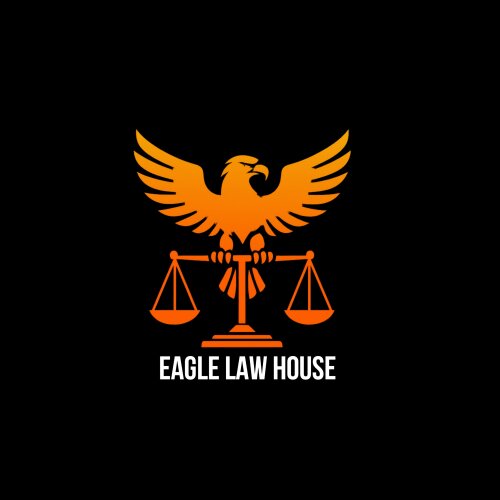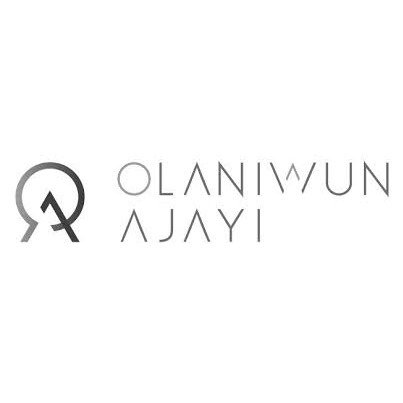Best International Trade Law Lawyers in Nigeria
Share your needs with us, get contacted by law firms.
Free. Takes 2 min.
Or refine your search by selecting a city:
List of the best lawyers in Nigeria
Legal guides written by Adeola Oyinlade & Co:
- Procedure and Requirements for Work Permit and Visas in Nigeria
- The Step-By-Step Procedure of How to Apply for Microfinance Bank License Online in Nigeria
- How to Ensure the Smooth Recognition and Enforcement of Foreign Judgments in Nigeria
About International Trade Law in Nigeria
International Trade Law in Nigeria encompasses a spectrum of legal practices regulating the exchange of goods, services, and capital across international borders. Due to its strategic geographical location and resource-rich environment, Nigeria engages actively in international trade, governed by a combination of domestic laws, international treaties, and agreements. The legal landscape covers export and import regulations, trade agreements, and tariff policies, guided primarily by the Nigerian Customs Service, the Ministry of Industry, Trade and Investment, and adherence to international obligations under the World Trade Organization (WTO) and other multilateral agreements.
Why You May Need a Lawyer
Legal expertise in International Trade Law can provide valuable assistance in a variety of situations:
- Import and Export Transactions: Navigating tariffs, customs duties, and compliance with local regulations.
- Dispute Resolution: Addressing trade disputes through negotiations, arbitration, or litigation.
- Contract Negotiations: Drafting and reviewing agreements to ensure they meet legal requirements and protect your interests.
- Trade Policy Compliance: Ensuring adherence to trade policies, including sanctions and export control regulations.
- Investments and Joint Ventures: Structuring deals and ventures in compliance with Nigerian and international trade laws.
Local Laws Overview
Nigeria's international trade is regulated by various key laws and regulatory frameworks:
- Customs and Excise Management Act: Governs the importation and exportation of goods, setting out procedures for customs duties and tariffs.
- Export (Incentives and Miscellaneous Provisions) Act: Provides incentives to encourage exports from Nigeria, offering duty drawbacks and exemptions.
- Investment and Securities Act: Regulates investments, particularly foreign investments, ensuring compliance with capital market rules.
- Companies and Allied Matters Act (CAMA): Oversees the incorporation of companies, including foreign subsidiaries, and governs their operations.
- Standards Organisation of Nigeria (SON) Act: Sets quality standards for imported and exported goods, ensuring compliance with local and international norms.
Frequently Asked Questions
What is the role of the Nigerian Customs Service?
The Nigerian Customs Service is responsible for the assessment and collection of customs revenue, facilitation of national and international trade, and enforcement of import and export regulations.
What are the common import and export restrictions in Nigeria?
Restrictions are imposed on items considered hazardous, environmentally damaging, or culturally inappropriate. Additionally, specific licenses may be required for certain goods such as pharmaceuticals and agricultural products.
Do I need a license to export goods from Nigeria?
Yes, exporters in Nigeria must register with the Nigeria Export Promotion Council and may require specific licenses depending on the nature of goods being exported.
How can I resolve trade disputes in Nigeria?
Trade disputes can be addressed through negotiation, mediation, arbitration, or litigation. Engaging a lawyer experienced in international trade can provide effective strategies for resolution.
What taxes apply to international trade in Nigeria?
Goods imported into Nigeria are subject to duties, taxes, including VAT, and sometimes excise duties. Taxes can vary based on the commodity type and trade agreements in place.
How do international trade agreements impact Nigerian businesses?
Trade agreements can affect tariffs, market access, and regulatory compliance, benefiting Nigerian businesses by providing opportunities for exports or challenges through increased competition.
What is the role of the Ministry of Industry, Trade and Investment?
The Ministry shapes trade policy, promotes foreign and domestic investment, and facilitates trade promotion and protection, ensuring legal compliance and supporting economic growth.
Can foreign investors freely invest in Nigeria?
Yes, but investments must comply with the Investment and Securities Act and may require registration with the Nigerian Investment Promotion Commission, adhering to capital controls.
What legal processes are needed for establishing a joint venture with an international partner?
Establishing a joint venture requires incorporation under CAMA, drafting agreements, compliance with the Investment and Securities Act, and may involve sector-specific regulations.
Are there any incentives for foreign trade in Nigeria?
Yes, the government offers various incentives, including tax exemptions, duty drawbacks, and free trade zones, to encourage trade and investment in specific sectors.
Additional Resources
For further assistance on International Trade Law in Nigeria, consider the following resources:
- Nigerian Customs Service: Provides comprehensive information on customs procedures, tariffs, and regulations.
- Ministry of Industry, Trade and Investment: Offers policy guidelines, investment opportunities, and trade support services.
- The Nigerian Bar Association (NBA): Connects individuals with registered legal practitioners specializing in trade law.
- Standards Organisation of Nigeria (SON): Ensures compliance with quality standards for goods traded internationally.
Next Steps
If you need legal assistance in International Trade Law in Nigeria, consider the following steps:
- Identify Your Needs: Clearly define the legal issues or questions you face.
- Research Professionals: Look for lawyers experienced in international trade law, preferably those with a track record in Nigeria.
- Consult with a Lawyer: Schedule consultations to discuss your needs and potential legal strategies.
- Prepare Documentation: Gather relevant documents regarding your trade transactions or disputes to provide a comprehensive overview for your lawyer.
- Stay Informed: Remain updated on any changes in local laws and international agreements that may impact your trade activities.
Lawzana helps you find the best lawyers and law firms in Nigeria through a curated and pre-screened list of qualified legal professionals. Our platform offers rankings and detailed profiles of attorneys and law firms, allowing you to compare based on practice areas, including International Trade Law, experience, and client feedback.
Each profile includes a description of the firm's areas of practice, client reviews, team members and partners, year of establishment, spoken languages, office locations, contact information, social media presence, and any published articles or resources. Most firms on our platform speak English and are experienced in both local and international legal matters.
Get a quote from top-rated law firms in Nigeria — quickly, securely, and without unnecessary hassle.
Disclaimer:
The information provided on this page is for general informational purposes only and does not constitute legal advice. While we strive to ensure the accuracy and relevance of the content, legal information may change over time, and interpretations of the law can vary. You should always consult with a qualified legal professional for advice specific to your situation.
We disclaim all liability for actions taken or not taken based on the content of this page. If you believe any information is incorrect or outdated, please contact us, and we will review and update it where appropriate.
Browse international trade law law firms by city in Nigeria
Refine your search by selecting a city.

















